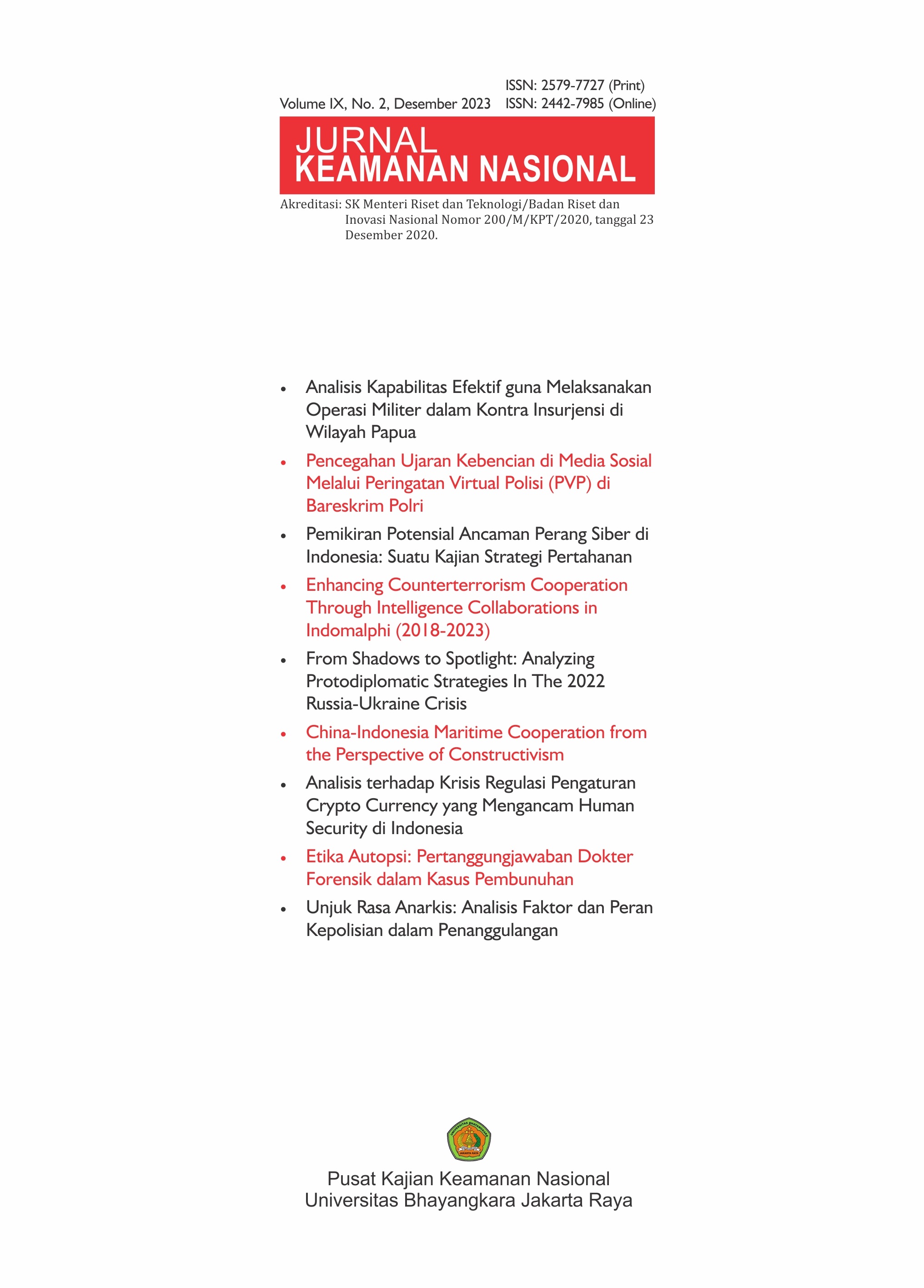Etika Autopsi: Pertanggungjawaban Dokter Forensik dalam Kasus Pembunuhan
Keywords:
Accountability, Forensic Doctor, Case Manipulation, HomicideAbstract
Forensic autopsy serves as the cornerstone for drawing conclusions in the Visum et Repertum concerning deceased bodies. The critical issue lies in whether a second autopsy can unveil further facts about the victim’s demise, particularly when post-mortem alterations, such as stitching and gluing, have occurred. This research aims to examine the role of autopsies in uncovering the criminal act of the murder of Brigadier Nofriansyah Yoshua Hutabarat. Additionally, it scrutinizes the accountability of forensic doctors conducting autopsies with the intent of manipulating homicide cases. The study employs a normative research approach, encompassing legal perspectives and case analysis. The findings indicate that autopsy plays a crucial role in determining the exact cause of death. Only through forensic autopsy can the precise cause of death be unveiled. The autopsy revealed that the primary cause of death was gunshot wounds to the back left side of the head and an entry gunshot wound to the right chest, tearing the lungs and causing severe bleeding. The accountability of a forensic doctor conducting an autopsy with the intention of manipulating a murder case implies a violation of the Medical Code of Ethics and the Doctor’s Code of
Ethics, specifically Article 3 paragraphs (1) and (2) letter r of the Indonesian Medical Council Regulation Number 4 of 2011 concerning Professional Discipline for Doctors and Dentists. Furthermore, it constitutes a criminal offense of obstruction of justice under Article 221 paragraph (1) numeral 1 of the Indonesian Penal Code.
Downloads

Downloads
Published
Issue
Section
License
Please read and understand the copyright terms for submissions to this journal.
Copyright Notice
The Jurnal Keamanan Nasional is under the Creative Commons Attribution 4.0 International (CC-BY 4.0) License, according to which:
1) Authors retain copyright and grant the journal the right to first publication, with the work simultaneously licensed under the Creative Commons Attribution (CC-BY 4.0) that allows the sharing of articles published with the acknowledgement of authorship and the initial publication in this journal.
2) The authors are authorized to make additional contracts separately for distribution of the version of the work published in this journal (for example, publication in an institutional repository or as a chapter of the book), as long as there is recognition of authorship and initial publication in this journal.
3) Authors are authorized and encouraged to publish and distribute their work online (for example, in institutional repositories or on their personal pages) at any time before or during the editorial process, as it increases the impact and reference of the published work.












